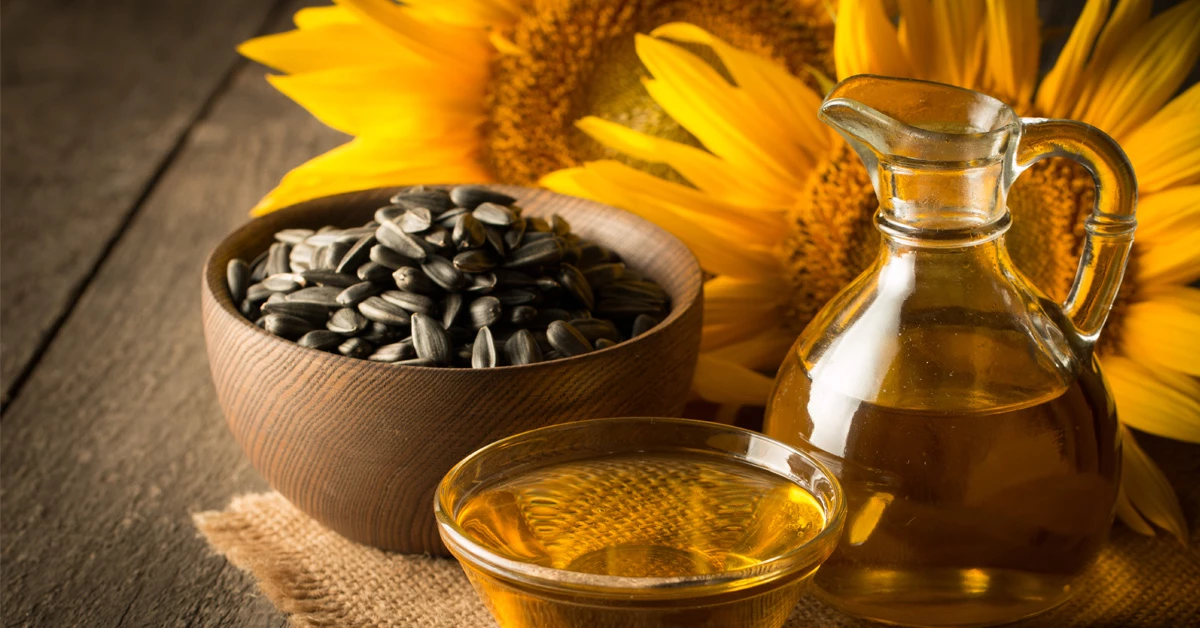Learn more about vegetable oils and the importance of ensuring their high quality through various types of analyses in this interview with Wim Broer, our expert from NofaLab.
Vegetable oils are used broadly in many forms and functions, including foods, cosmetics, electrical products, pet food additives, fuel, and various industrial uses. As a result, analysing its quality is of great importance to ensure safety throughout global supply chains.
We contacted one of our experts from NofaLab, a sampling and testing laboratory based in the Netherlands and specialized in the field of food, feed, and environmental safety, to get in-depth insights about the analysis of vegetable oil.

Wim BROER, Manager Science & Development, answers all our questions on this topic:
Where does the expertise of NofaLab regarding the testing of vegetable oils stem from?
Vegetable oils were one of the first commodities tested from the start of the Laboratory, back in 2004. In fact, our expertise in this commodity is even reflected in the name, since Nofalab is short for Nuts Oils Fat Analysis.
What does a vegetable oil contain?
Vegetable oils are extracted and/or pressed from oil containing seeds, like for example sunflower seeds, rapeseeds, soybeans, and oil-containing fruits such as olives, palm, coconut, etc. The oil contains mostly triglycerides, which is glycerol with various fatty acids. There are saturated and unsaturated fatty acids. The unsaturated fatty acids are known as omega 3. Other elements present in the oil are Vitamin E (tocopherols) and sterols.
In which products is vegetable oil found?
Vegetable oil is found in a broad range of products with many different uses. Here, we focus mostly on cooking oil, margarine, mayonnaise, and baking products. It is to be noted that it is also found in cosmetics products such as soap, massage oils, moisturizing products, and more.
Why is it so important to test vegetable oil?
Vegetable oil is a natural agricultural product. Because of this, the composition is not always the same from year-to-year or across continents. As a result, the quality should be tested to ensure consistency in the end products. During the process of harvesting, extraction, and refinery of the oil, many elements are put in place to improve the quality of the oil, but there might also be some issues happening, such as:
- Forming of PAH (Polycyclic Aromatic Hydrocarbons) while drying the coconut. These compounds are formed during combustion and are carcinogenic, thus considered as a contaminant.
- Formation or accumulation of Dioxin due to the situation at the harvesting site.
- Formation of 3-MCPD and glycidyl esters due to high temperatures during refinery – palm oil suffers mostly from that, making it genotoxic.
- Contamination from mineral oil, AKA MOSHMOAH, which is toxic and carcinogenic.
- Contamination of the crop with pesticides and mycotoxins. Pesticides are contaminants applied to prevent the loss of crops due to herbs, insects, rodents and moulds. Mycotoxins are natural toxins from mould origin, which grows on organic material like grains and seeds under humid conditions. This might occur under the wrong storage conditions for example.
What are the risks connected to vegetable oil?
Vegetable oil is a major ingredient in food. It is 100% fat, but that is not really a risk of course. However, once it is used as a cooking oil, toxic trans-fatty acids may be formed, which is why it is important to test it and ensure its high quality.
What is the procedure to test vegetable oils?
The procedures to test vegetable oil are twofold:
1. Quality Testing (to determine fatty acid composition, stability, sterol content, viscosity etc)
2. Contaminants Testing for things like MOSHMOAH 3-MCPD, dioxin, pesticides. These contaminants are measured according to standard procedures. If the result of the analysis is above the MRL (Maximum Residue Limits), the product is not safe for human consumption
Are there any synergies around oil testing within the Cotecna Group and other affiliates?
Cotecna worldwide is strongly involved in agriculture, which also encompasses the production of oil-containing fruits and seeds. By working together with other affiliates, we are present throughout the entire supply-chain. Sometimes there is only inspection of raw products needed, but in several cases customers also require some analysis, in which NofaLab can intervene, along with other laboratories in Romania, Ukraine, and Argentina, with which we collaborate. In addition, the testing of palm oil and especially MOSHMOAH and 3-MCPD is of high interest in East-Asia, where we can support the network with our expertise.


